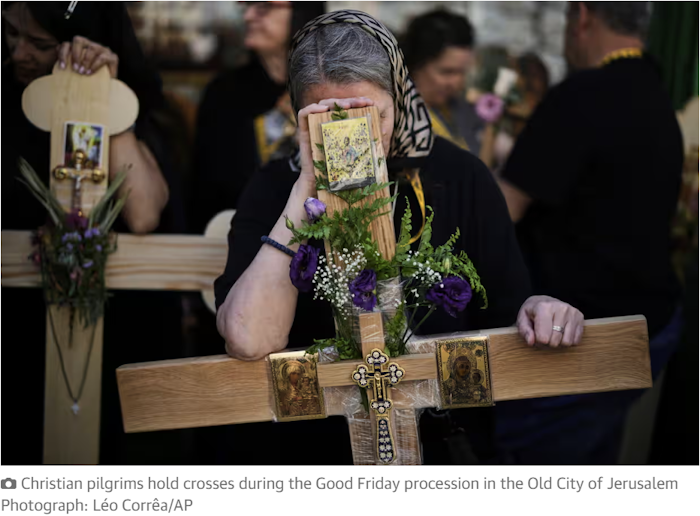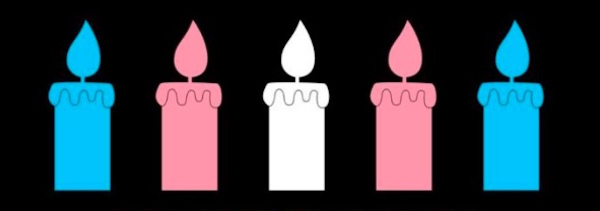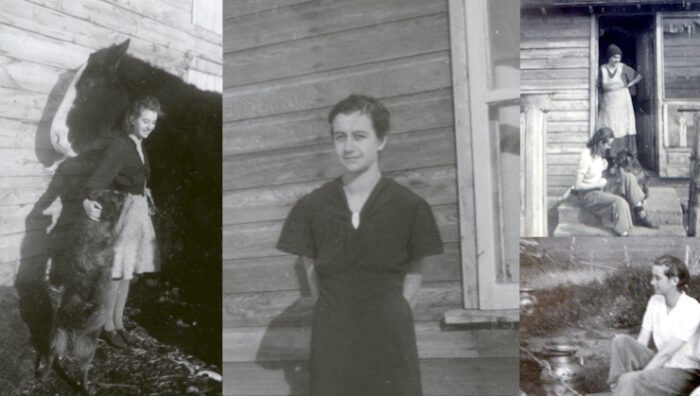Today, I’ll walk, without fear, to the Good Shepherd Anglican Church, and freely make my way through the Stations of the Cross.
In the West Bank, indigenous Palestinian Christians, should they have applied for the few permits available, and gone through the indignity of interrogation, will brave the heavily armed checkpoints, the ritual abuse, and should they escape being arbitrarily being turned back, they’ll worship in Jerusalem, at Christianity’s most holy site. And despite the diminishing numbers of Christians left in the militarized West Bank, despite the horrors, the razing of Gaza, they will pray. For Easter is a time of hope, the timely message that life defeats death. It’s a profound act of resistance in the face of an overwhelming occupying force.
A week before Easter week, as the Israeli “Defence” Force bombed another “humanitarian safe zone,” we marched, we chanted.
What do we want?
Ceasefire.
When do we want it?
Now!
Is this not the most reasonable of demands, a simple request not to be killed?
How many children have to die?
Before you call it genocide.
We chanted for the boy in Gaza, who, when asked what he wanted to be when he grew up, said, “Children in Gaza do not get to grow up.”
In our thousands in our millions
We are all Palestinians
Empathy is the ability to wear the clothes, enter the home,
listen to a mother tell the story of her child whose heart burst
from the deafening sound of a 2000 lb. bomb.
Netanyahu you can’t hide
We charge you with genocide
In Hitler’s Germany, the billboards read, “The Jews are our Misfortune.”
In Netanyahu’s circle, the refrain is heard, “There are no innocents in Palestine.”
…and just like that, genocide is justified.
From Canada to Palestine
Occupation is a crime
Slowly, Canada has been reckoning with the atrocities of its colonialist past.
140 years ago, came the North-West Resistance, and Ottawa
looked to the west and hanged Louis Riel for treason.
In Palestine: mass expulsion 76 years ago, leads to 55 years of occupation,
and the creation of the largest open-air prison in the world,
where the IDF regularly “mows the grass,”
and we wonder why a “gang” came to power?
And today, even as the ICJ and the ICC call out the war crimes, name it genocide, Canada still supplies the “settler-colonial” regime (UN) with military goods (see Ploughshares Feb. 24).
(In yesterday’s Canadian Election debate, “Poilievre said the focus should be on defeating Hamas and taking on Iran. He then pivoted to “the rampaging riots targeting Jewish communities” in Canada, an apparent reference to pro-Palestine protests.” Carney wasn’t much better. Only Singh seemed to catch the gravity, and called Canada’s treatment of Palestinians “frankly, disgusting”. And added that Carney has not “acknowledged that what’s going on in Gaza has now clearly become a genocide”)
Every time the media lies
Another child in Gaza dies
I’m guilty. Before reading the 75-year history (by both Jewish and Palestinian historians), I dismissed it as all too complicated.
A willfully ignorant Western media, where all discussions begin with October 7, is convenient for the empire.
The heart that mourns for Palestine, grieves for Gaza,
aches for the West Bank, must also break
for the people of Israel.
It’s the oldest tribal story: the oppressed forget their history,
become the oppressors, become synonymous with their victims,
and lose their soul.
And we are enablers. Weapons suppliers. When the nations of the world (in order, United States, United Kingdom, France, India, Canada, Italy, Serbia, Netherlands) support the live-streamed erasure of an ancient people and their land, deal with the greatest moral issue of our time through political tinkering, the globe stands self-condemned. The earth itself must groan for liberation.
The people who march understand futility.
They chant to preserve some moral fidelity.





